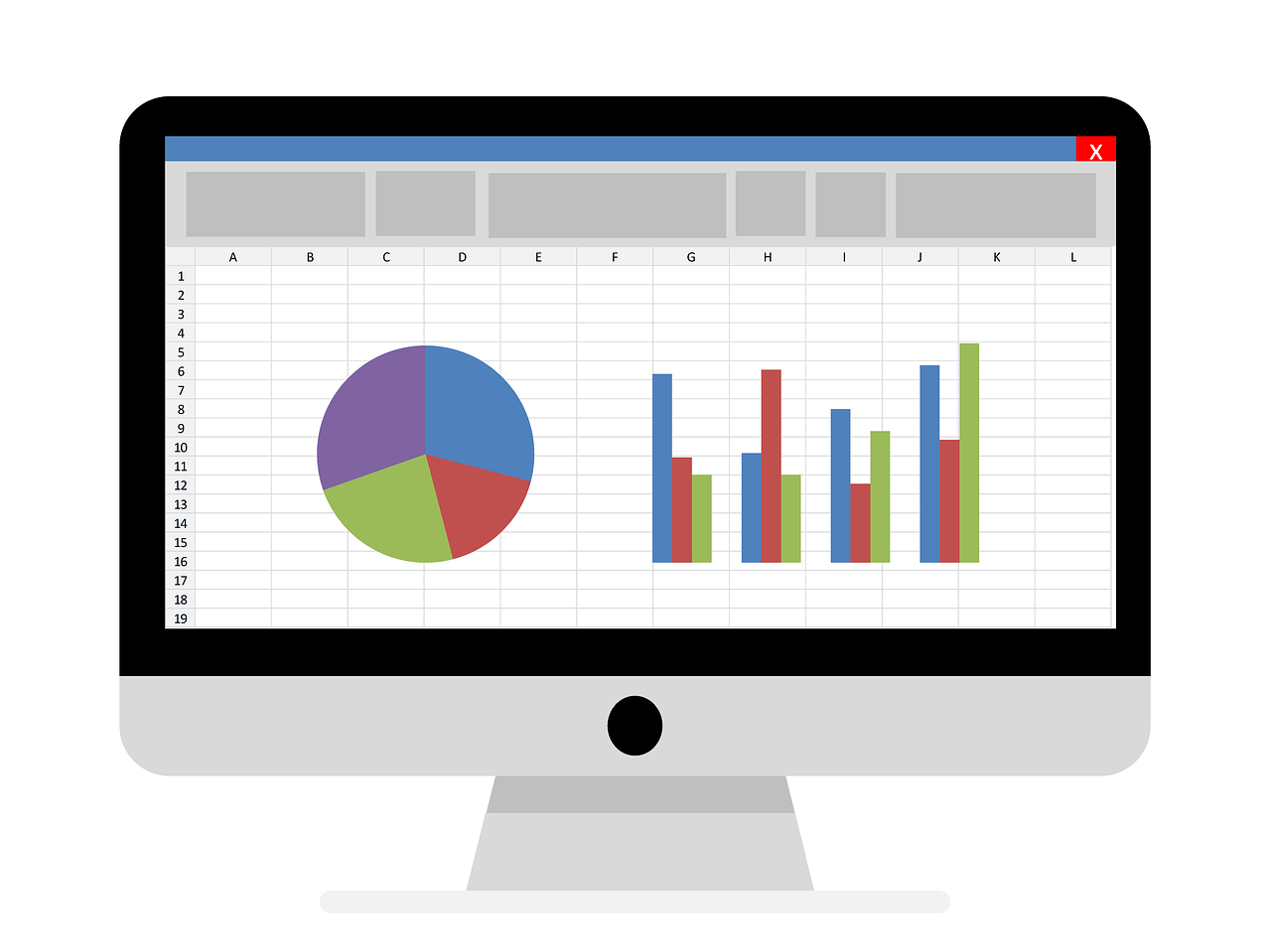In today’s rapidly evolving business landscape, companies face unprecedented challenges and opportunities tied to long-term sustainability. With climate change accelerating and stakeholder expectations shifting toward environmental, social, and governance (ESG) priorities, financial stewardship is no longer just about short-term profits. Instead, it demands a strategic approach that balances immediate financial needs with future resilience. This transformation is reshaping how organizations manage capital, invest in innovation, and align resources toward sustainable growth. Leveraging technologies like Intuit QuickBooks and SAP alongside global consultancy insights from Deloitte, PwC, Ernst & Young, and KPMG, businesses are forging new paths to embed sustainability deeply into their financial operations. By anticipating risks related to carbon-intensive assets, fostering innovation, and embracing regulatory frameworks, companies gain a competitive edge that ensures longevity beyond conventional business cycles.
Managing finances for sustainability involves far more than ticking ESG boxes; it requires integrating measurable goals into core decision-making processes. From embedding transparency in sustainability reporting to mobilizing capital for green investments, finance leaders are now pivotal in driving their organizations’ transitions. For example, CFOs harness platforms like Oracle and FreshBooks to track sustainability metrics, fostering accountability and strategic agility. Additionally, partnerships, both internal and external, unlock hidden benefits that amplify sustainability efforts while proving financially sound. As such, understanding how to align financial stewardship with broader sustainability objectives is essential to driving lasting value creation in today’s competitive, purpose-driven markets.
Integrating ESG Considerations into Financial Management for Sustainable Growth
Effective long-term financial sustainability begins with a comprehensive integration of environmental, social, and governance considerations directly into companies’ financial management frameworks. By shifting the focus from purely financial metrics to ESG-inclusive data, organizations can better anticipate hidden risks while capitalizing on emerging opportunities. A key example lies in avoiding stranded assets—investments in fossil fuels or unsustainable practices that suddenly lose value due to environmental regulations or market shifts.
Leading companies now employ advanced financial tools such as Intuit QuickBooks and SAP financial modules to capture and analyze ESG factors alongside traditional indicators. These platforms enable more nuanced portfolio management that reflects ESG risk exposures and measures positive environmental outcomes. For instance, implementing these systems helps businesses screen investments rigorously, ensuring alignment with sustainability objectives while safeguarding financial stability.
Moreover, financial institutions that embed ESG metrics can reduce regulatory risks and enhance investor confidence. Regulatory bodies globally, alongside initiatives like the United Nations Environment Programme Finance Initiative (UNEP FI), are pushing for greater transparency and accountability in sustainability reporting. Firms leveraging Oracle’s cloud solutions and analytics for such disclosures stand out for their adaptability and foresightedness.
| ESG Integration Benefits | Examples of Practical Applications | Impact on Financial Performance |
|---|---|---|
| Risk Reduction | Screening fossil fuel investments; tracking carbon emissions | Lower regulatory penalties and reduced stranded asset exposure |
| Portfolio Optimization | Allocating capital to renewables; ESG fund assessment with FreshBooks | Higher risk-adjusted returns over the long term |
| Investor Attraction | Transparent sustainability reports using SAP & Oracle tools | Increased capital access and share price stability |
| Innovation Stimulation | Product development aligning with ESG goals | Enhanced operational efficiency and cost savings |
To embrace ESG fully, companies should also nurture a culture of sustainability-driven innovation. For example, collaborative engagements with Deloitte and Ernst & Young have highlighted how embedding sustainability into corporate DNA spurs innovative financial products and services, driving competitiveness. Nurturing this mindset enhances workforce engagement and accelerates adaptation in dynamic markets. For further guidance, businesses can explore mindset traits shaping entrepreneurial success to understand the leadership needed for sustainable finance.

Balancing Risk Management and Opportunity Through Sustainable Finance Solutions
Managing financial risks linked to environmental and social factors is a complex but critical process to secure long-term business viability. The integration of ESG metrics enhances this by showing how risks, from climate change to social unrest, can directly impact companies’ financial health.
Financial software solutions such as Xero and FreshBooks now incorporate environmental impact indicators, enabling financial teams to simulate scenarios and plan for sustainability risks effectively. For example, companies exposed to natural resource scarcity can proactively adjust credit policies or diversify portfolios, preventing loan defaults and losses.
Consulting firms like PwC and KPMG consistently underscore that sustainable finance is increasingly linked to operational resilience. Their research shows firms embracing sustainability not only mitigate risks but also discover new avenues for growth. For example, PwC’s insights on regulatory frameworks provide actionable strategies to comply with evolving sustainability laws without sacrificing agility or profitability.
- Risk Identification: Using SAP’s integrated risk management to document sustainability-related threats.
- Scenario Planning: Oracle’s cloud-based tools enable real-time environmental stress testing for financial portfolios.
- Stakeholder Engagement: Leveraging Deloitte’s frameworks for aligning investor interests with sustainability commitments.
- Capital Allocation: Directing funds toward ESG-positive sectors like renewable energy through Intuit QuickBooks analytics.
- Performance Tracking: Employing Ernst & Young’s advisory services to monitor ongoing sustainability KPIs and adjust strategy accordingly.
| Risk Management Strategy | Technology & Consultancy Role | Outcome on Financial Stability |
|---|---|---|
| ESG Risk Assessment | Xero’s environment-impact dashboards; PwC regulatory advice | Reduced exposure to climate-related losses |
| Investment Diversification | FreshBooks financial reporting integrated with ESG scoring | Improved portfolio resilience |
| Compliance & Reporting | KPMG standards for non-financial disclosure via SAP modules | Mitigation of fines and reputational risk |
| Capital Mobilization | Oracle-driven green bond structuring; Deloitte’s capital insights | Increased funding for sustainable initiatives |
More companies are learning to turn crises into catalysts for sustainability-led innovation. Discover strategies to transform challenges into opportunities, fostering resilience in volatile markets. Such agility becomes essential as businesses face rising expectations for sustainability transparency and accountability.

CFO Leadership in Steering Finance toward Sustainability Transformation
The role of CFOs has evolved dramatically with sustainability at the forefront of corporate priorities. Leading organizations recognize CFOs as key architects in integrating sustainability into financial strategy, performance measurement, and investor relations. Notably, the United Nations has established a CFO Coalition for the Sustainable Development Goals, spotlighting the pivotal influence of CFOs in shaping sustainable investments.
Surveys conducted by the IBM Institute for Business Value and APQC reveal four categories of finance leadership approaches, ranging from “Assessing” to “Transformational.” Transformational finance leaders actively spearhead sustainability integration through five core responsibilities:
- Lead on quantification: Developing business cases and tracking environmental impacts precisely using tools like Oracle and SAP.
- Mobilize capital: Securing and allocating sustainable financing, often leveraging innovations in green bonds and ESG funds.
- Enable culture change: Aligning employee incentives and fostering sustainability-centric organizational cultures with support from PwC’s culture advisory services.
- Operationalize sustainability reporting: Navigating a complex regulatory environment to maintain transparency, using advanced reporting modules within QuickBooks and Xero.
- Embed sustainability in finance operations: Implementing sustainability within the finance function itself, such as reducing finance teams’ carbon footprints through digital workflows.
This leadership model not only strengthens sustainability outcomes but positions companies to capture long-term value. For CFOs seeking to maximize impact, understanding when and how to scale sustainability initiatives is crucial. Valuable insights on optimal scaling strategies can guide this process to avoid premature or missed opportunities.
| CFO Responsibility | Actions & Tools | Benefits for Long-Term Sustainability |
|---|---|---|
| Quantification | Environmental metric tracking via SAP; Oracle analytics | Data-driven decision-making and improved sustainability outcomes |
| Capital Mobilization | Green bond financing; Intuit QuickBooks investment dashboards | Access to sustainable capital with competitive cost of funds |
| Culture Change | Employee incentive alignment; PwC consultancy on corporate culture | Enhanced employee engagement and productivity |
| Reporting | Xero sustainability dashboard; regulatory compliance with KPMG | Transparency and stakeholder trust |
| Embedding in Finance | Digital workflows; carbon reduction tools | Reduced operational emissions and cost savings |
Technology’s Role in Enhancing Transparency and Sustainability Reporting
Transparency in sustainability efforts has become a regulatory and market imperative. Advanced technologies increasingly underpin efforts to collect, analyze, and report ESG data with unprecedented accuracy and comprehensiveness. Solutions like Oracle’s cloud platform, SAP’s intelligent enterprise applications, and user-friendly financial software such as FreshBooks and Xero empower firms to operationalize sustainability KPIs seamlessly.
By automating sustainability reporting, companies can not only comply with complex international standards but also strengthen relationships with investors, regulators, and consumers. These tools facilitate effective communication of progress toward ambitious sustainability targets — including net-zero goals and circular economy strategies.
- Data integration: Combining financial and non-financial data streams within unified dashboards supports holistic decision-making.
- Real-time tracking: Continuous monitoring of emissions, resource use, and social metrics ensures agility.
- Regulatory compliance: Automated generation of regulatory filings reduces risks of errors and penalties.
- Stakeholder engagement: Transparent reporting boosts investor confidence and brand reputation.
- Benchmarking: Tools enable comparison against industry peers to identify improvement areas.
| Technology Feature | Purpose | Benefit |
|---|---|---|
| Cloud-Based Platforms (Oracle, SAP) | Integrate ESG and financial data | Improved decision-making and transparency |
| Financial Software (FreshBooks, QuickBooks, Xero) | User-friendly sustainability reporting dashboards | Accessibility for small and medium enterprises |
| Automation Tools | Streamline regulatory submissions | Ensure compliance and reduce manual errors |
| Data Analytics | Identify ESG risks and opportunities | Drive targeted sustainability initiatives |
Corporate leaders frequently turn to trusted advisors such as Deloitte, Ernst & Young, and KPMG for tailored guidance on technology implementations to meet evolving sustainability requirements. For companies new to sustainability, exploring case studies and practical frameworks—detailed in resources like how companies adapt to sustainability strategies—can clarify implementation pathways.

Unlocking the Human Capital Advantage: Attracting and Retaining Talent Through Sustainability Finance Strategies
In the current era of heightened awareness on social and environmental issues, companies prioritizing sustainability in their finance strategies attract and retain top talent effectively. Employees increasingly seek purpose-driven organizations whose values resonate with their own, placing a premium on companies that emphasize ESG commitments and transparent reporting.
Firms that incorporate sustainability into compensation models and recognition programs foster environments where employees feel motivated and engaged. Tools from Intuit, Oracle, and Deloitte can support performance assessment linked to sustainability goals, integrating these into broader corporate culture initiatives. Additionally, embracing diversity and inclusion alongside environmental targets has a profound impact on workforce satisfaction.
- Employee engagement programs aligned with corporate sustainability goals
- Incentivization of sustainable behaviors through bonuses or rewards
- Transparent communication of sustainability progress and impacts
- Training and development focused on ESG competencies
- Collaborative partnerships enhancing social responsibility credentials
| Talent Strategy | Actions | Sustainability Impact |
|---|---|---|
| ESG-Linked Incentives | Performance bonuses tied to sustainability KPIs | Increased employee motivation and productivity |
| Inclusive Culture | Diversity initiatives and flexible work policies | Enhanced innovation and team cohesion |
| Communication | Frequent updates via internal platforms and meetings | Transparency builds trust and engagement |
| Learning & Development | Workshops on sustainable business practices | Empowered workforce ready for sustainability challenges |
| External Partnerships | Collaborations with NGOs and sustainability networks | Broadened positive community impact |
For organizations aiming to sustain long-term gains, understanding the hidden benefits of business partnerships linked to sustainability can unlock novel human capital advantages. Additionally, effectively managing resistance to change supports the smooth integration of sustainability into daily finance operations.


